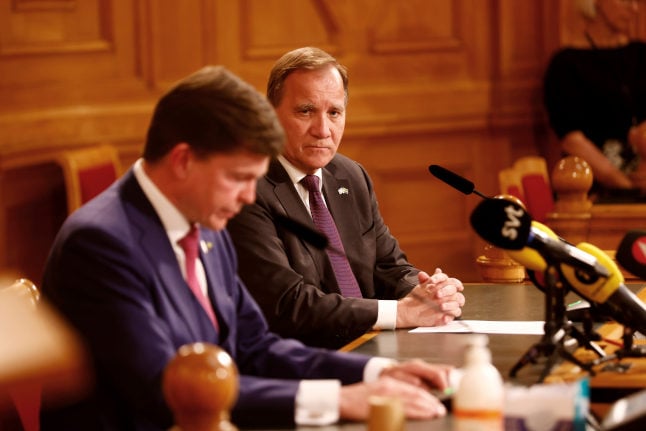The speaker of parliament, Andreas Norlén, told a press conference on Monday that he would nominate Social Democrat leader Löfven as prime minister, after opposition rival Ulf Kristersson of the Moderate Party last week failed in his attempts to form a new government.
This means parliament on Wednesday will vote on whether or not to reinstate Löfven as prime minister. If successful, the centre-left leader would then be able to step back into the role on Friday.
What may seem like a political game of musical chairs comes after Löfven lost a vote of no confidence on June 21st, following a row with the Left Party over rental laws. Löfven then resigned, triggering a round of talks between party leaders and the speaker, who has the role of proposing prime minister candidates based on an assessment of what a government backed by a parliamentary majority could look like.
If Löfven is voted back in, it will likely be with a wafer-thin margin. He will need 175 members of parliament to either vote for him or abstain (in other words, a prime minister candidate does not need a majority to vote for them, as long as the majority does not vote against them).
But the Swedish parliament is split almost right down the middle. Including independent members closely linked to their former parties, the parties on the right of the spectrum (the Moderates, Christian Democrats, Liberals and Sweden Democrats) together have 174 seats, while the parties to the left (the Social Democrats, Green Party, and Left Party) reach a total of 175 with the support of the Centre Party.
It would only take one person choosing to go against party lines, or indeed to be absent for the vote, for the balance to shift.
And even if Löfven is successful on Wednesday, he will likely have a rocky year ahead of him in the run-up to Sweden’s next general election in September 2022. He has not yet secured support for his autumn budget, with the Centre Party refusing to collaborate with the government’s other potential allies in the Left Party on a budget. Löfven has said he will again resign if his budget proposal falls.
You can catch up with Sweden’s government crisis in The Local’s articles below, or by listening to our podcast Sweden in Focus.



 Please whitelist us to continue reading.
Please whitelist us to continue reading.
Member comments